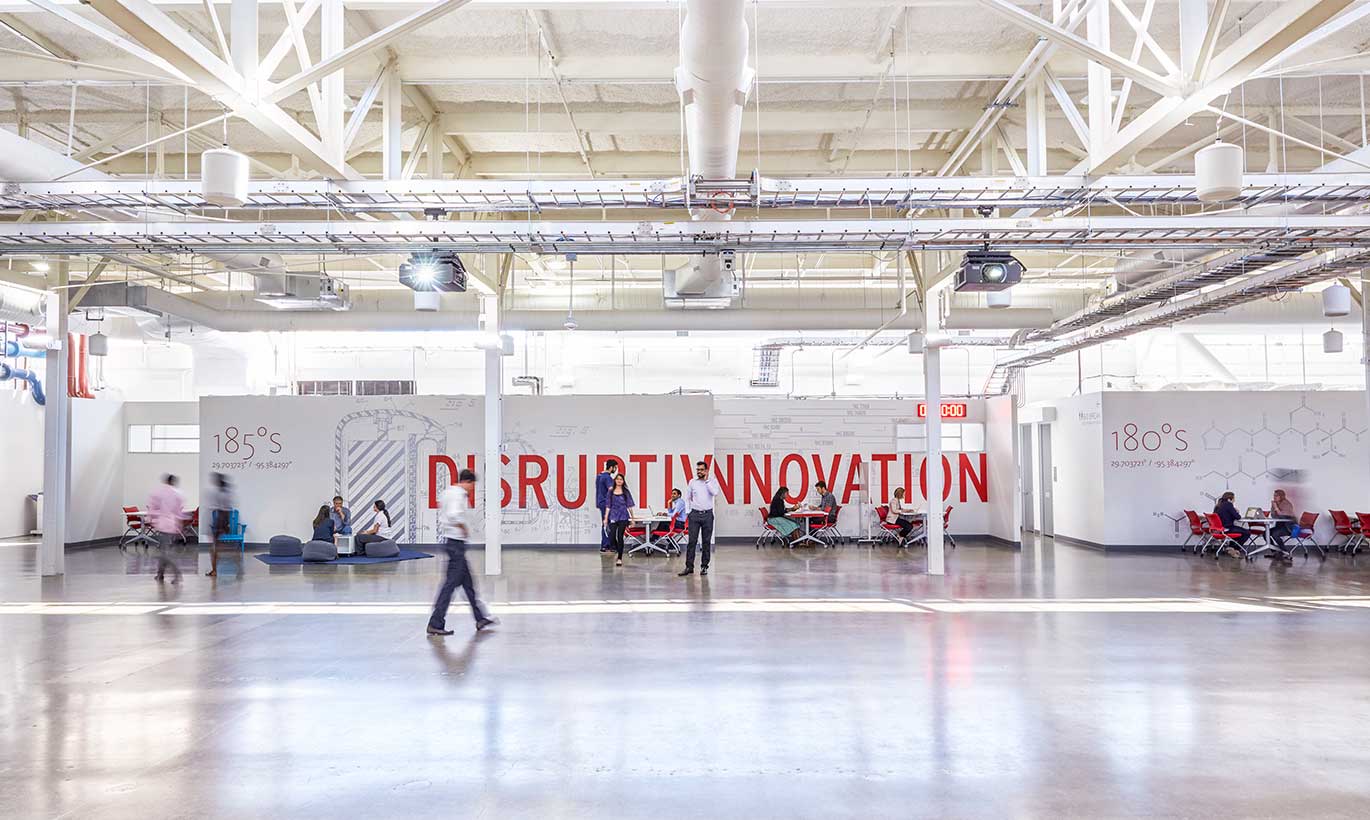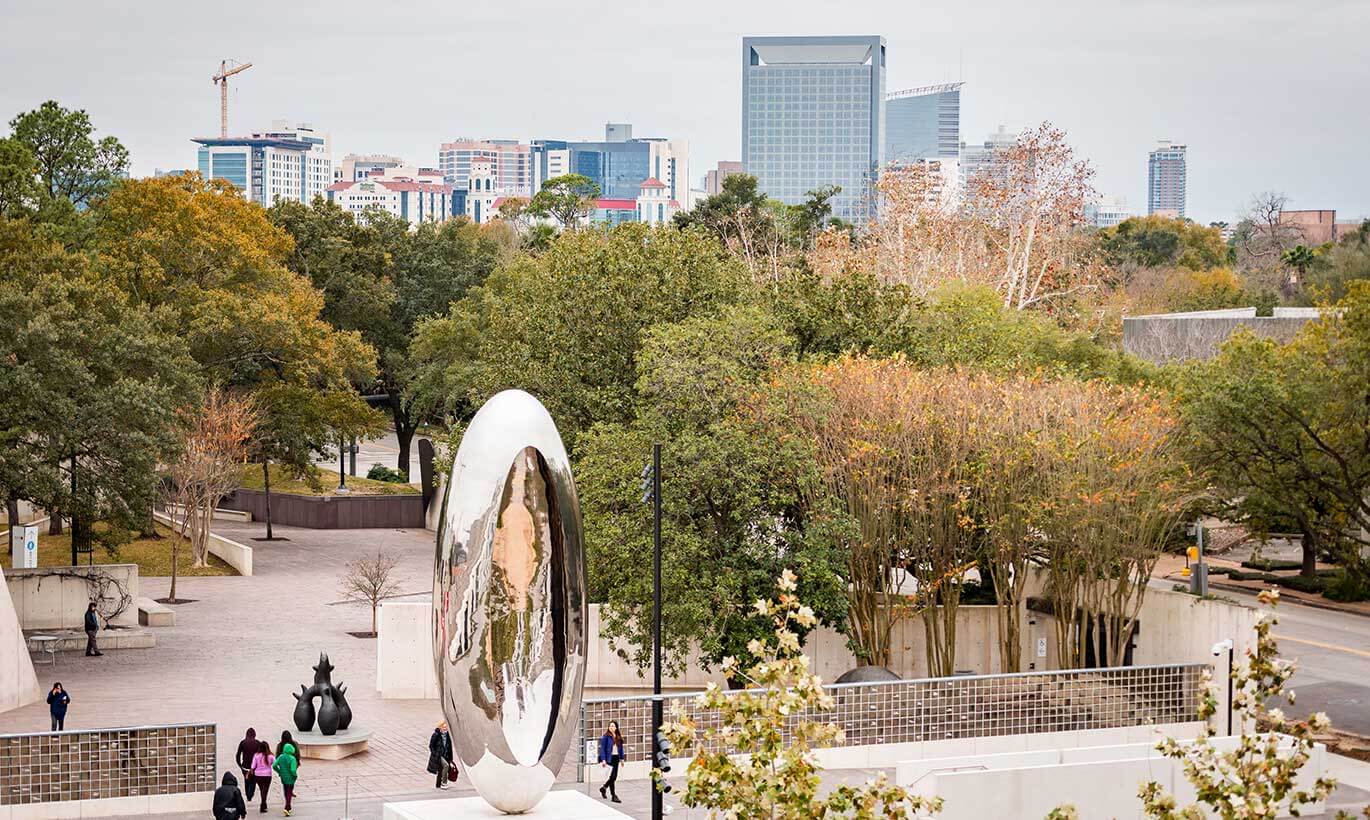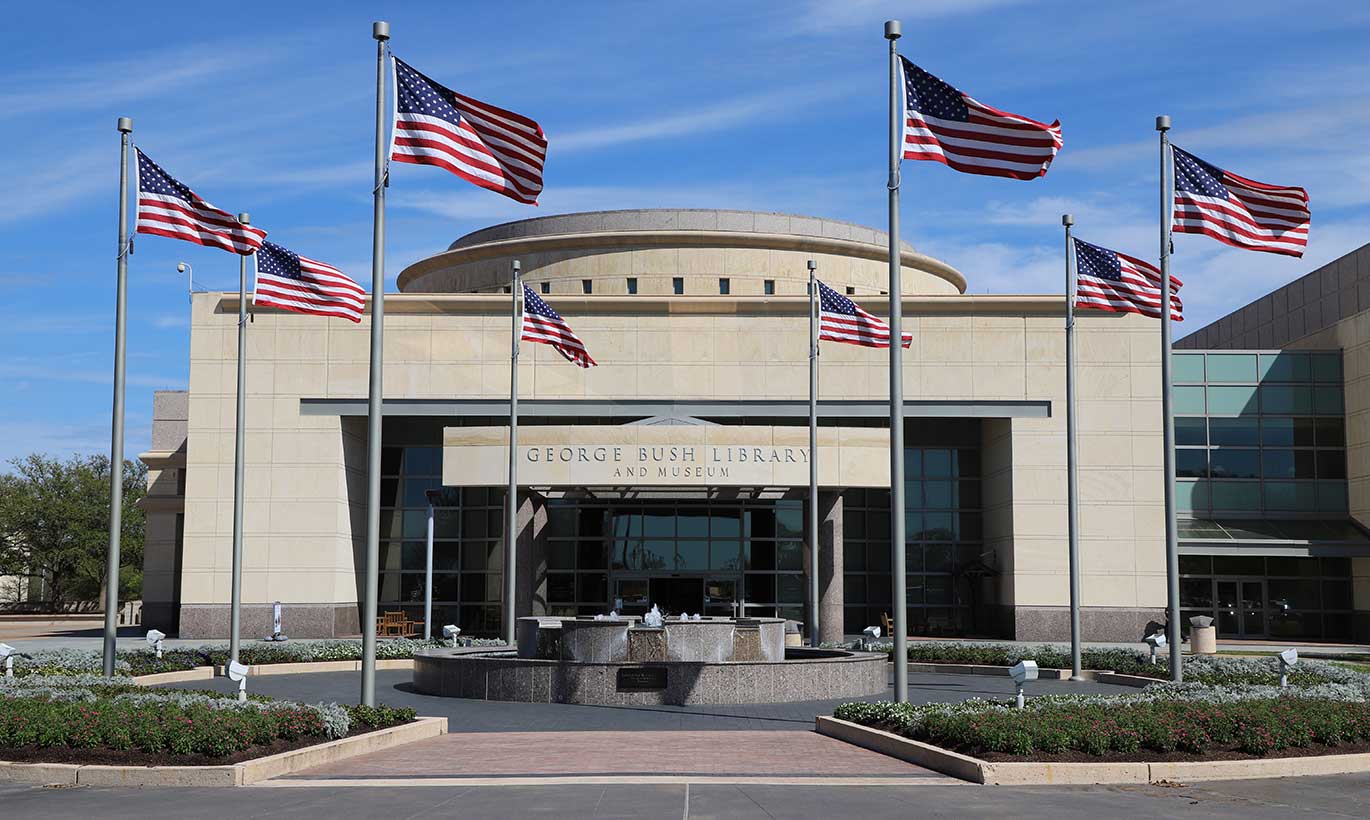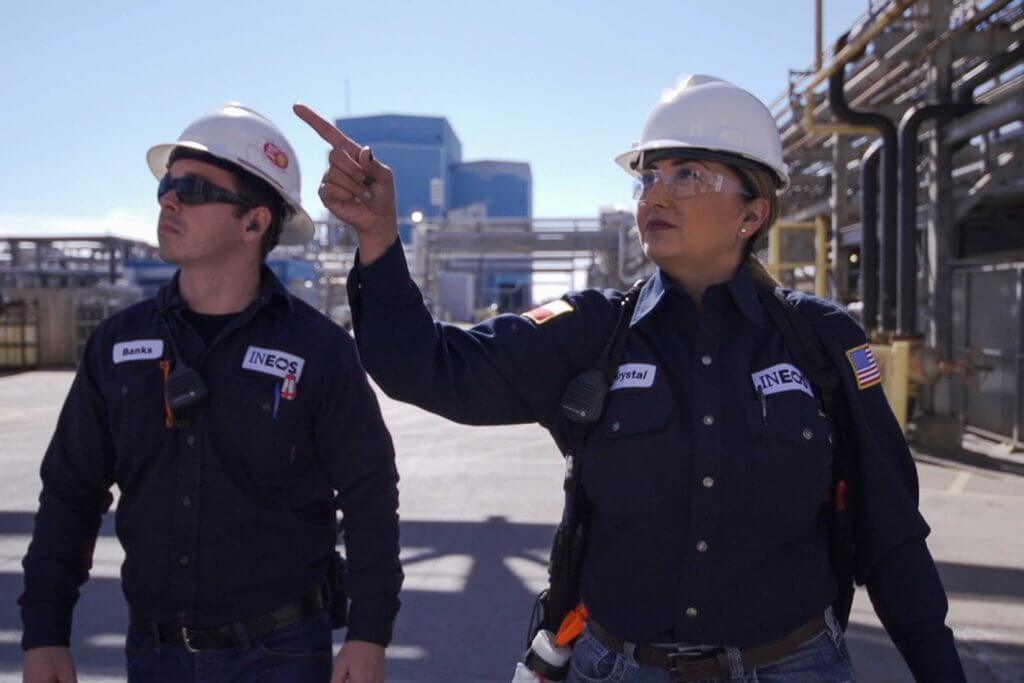Greater Houston delivers the scale, talent, and infrastructure global companies need to thrive. With a GDP of $697 billion, the Houston–The Woodlands–Sugar Land metro ranks as the seventh-largest economy in the United States. In fact, if Houston were a country, it would rank as the 22nd largest economy in the world. Here, business expansion is supported by a competitive cost structure, a strategic Gulf Coast location, and a welcoming regulatory environment that helps companies move quickly from concept to operation.
Key reasons businesses choose to open, expand, or relocate in Houston:
- #1 county in the U.S. for exports and foreign tonnage through Port Houston
- Cost of living is approximately 3% lower than the national average
- Streamlined development and construction approval processes
- No state income tax and competitive business costs
- Strategic location connecting the U.S. interior to global markets
- Diverse, well-educated workforce drawn from every corner of the world
Houston’s combination of affordability, accessibility, and innovation creates an unbeatable foundation for growth. Learn more about business opportunities in the Texas Gulf Coast.
The Energy Capital of the World
Houston’s reputation as the global energy capital is well-earned. The region is home to more than 4,600 energy-related businesses, including 39 publicly traded exploration and production companies and the headquarters of many of the world’s leading energy innovators like ConocoPhillips, SLB (Schlumberger), and Cheniere Energy.
About one-fifth of the world’s national oil companies operate in Houston, including seven of the 10 largest, and two-thirds of the global integrated oil companies have operations here. The 10 refineries in the Houston region process more than 2.6 million barrels of crude oil per day, approximately 45.1 percent of the state’s total production and 13.8 percent of the total U.S. capacity. According to the U.S. Bureau of Labor Statistics, the Houston metro holds one quarter of the nation’s jobs in oil and gas extraction.
From oil and gas to wind, solar, hydrogen, and carbon capture, Houston is driving the future of energy. The city’s Energy Corridor, Port Houston petrochemical complex, and emerging climate technology incubators such as Greentown Labs position the region at the forefront of both traditional and renewable energy innovation.
Investments topping $151 billion in renewables, storage, and clean energy research further cement Houston’s leadership in powering a sustainable future.
Key Industries Driving Growth
Life Sciences and Healthcare
Houston is home to the Texas Medical Center, the world’s largest medical complex, with more than 120,000 employees and a growing ecosystem of research, biotech, and medical device companies. Institutions like Baylor College of Medicine, MD Anderson Cancer Center, and UTHealth fuel groundbreaking work in genomics, cancer treatment, and medical innovation.
The Texas Medical Center Innovation Factory bridges research and commercialization, giving startups and global healthcare leaders a platform to collaborate and scale new technologies that improve lives worldwide.
Aerospace and Aviation
Houston’s identity as “Space City” began with the Apollo era and endures at NASA’s Johnson Space Center and through an expanding network of more than 230 private aerospace and space-vehicle companies. A major pillar of the region’s aerospace sector is the Houston Spaceport at Ellington Field, which provides advanced infrastructure for commercial spaceflight, research, and training.
Companies in advanced manufacturing, robotics, and propulsion are leveraging Houston’s engineering talent and technical expertise to develop the next era of space innovation.
Advanced Manufacturing and Logistics
Manufacturing in the Houston region is diverse, sophisticated, and globally connected. More than 5,000 manufacturers employ over 182,000 workers across Harris County, producing everything from precision equipment to chemical products.
The logistics advantage is unmatched: Port Houston ranks #1 in the U.S. for total tonnage, supported by an extensive highway, rail, and intermodal network that connects producers to markets on every continent.
These assets make Houston a central node in America’s supply chain and a hub for international trade.
Technology and Energy Transition
Houston’s transformation into a leader in clean energy and climate technology is accelerating. The Ion District, developed by Rice University, connects startups, corporations, and investors in a 16-acre innovation community focused on AI and energy tech.
Greentown Labs, the largest climatetech incubator in the southern United States, supports more than 80 startups developing solutions in carbon management, energy storage, and grid modernization. The city’s leadership in the energy transition is also reinforced by large-scale initiatives such as the HyVelocity Gulf Coast Hydrogen Hub, funded by the U.S. Department of Energy, and the Houston Energy Transition Initiative (HETI), which brings together regional universities and major energy companies to advance hydrogen, carbon capture, and clean-manufacturing projects.
Together, these efforts position Houston as a driving force in the technologies that will define the next era of global energy.
Learn more about how Texas’ accelerating economic growth fuels these and other industries.
A Skilled and Growing Workforce
The Houston metro’s workforce of over 2.6 million is one of the most diverse in the nation. The region’s young demographic ensures a steady pipeline of skilled labor across every major sector.
Graduates from Rice University, the University of Houston, Texas A&M, and other top institutions enter industries ranging from energy and healthcare to aerospace and software engineering.
Workforce programs like the Texas Skills Development Fund and the TRUE Initiative provide customized training to help employers upskill workers and meet evolving industry demands.
Infrastructure and Global Connectivity
Few regions rival Houston’s logistics capacity:
- Ports: Port Houston handles more waterborne tonnage than any other U.S. port, connecting to 90+ countries.
- Airports: Two international airports—George Bush Intercontinental (IAH) and Hobby (HOU)—plus Ellington Spaceport provide global access.
- Highways and Rail: An extensive system of interstates, loops, and rail lines makes freight movement fast and cost-efficient.
The region’s deregulated electricity market, reliable broadband expansion, and competitive energy prices give companies an additional advantage in scaling operations efficiently.
Houston Business Climate and Incentives
Houston offers one of the most competitive business environments in the United States.
With no state income tax, a modest franchise tax, and flexible land-use regulations, companies benefit from lower costs and faster approvals. The City and its partners also deploy a robust toolkit of incentives to catalyze projects:
- Chapter 380 performance-based grants and loans. Flexible awards for projects that stimulate business and commercial activity inside city limits.
- Tax Abatements. Property tax exemptions or reductions to attract new industry and support expansions and modernizations.
- Tax Increment Reinvestment Zones (TIRZ). Redirect a portion of incremental property taxes to finance public improvements that unlock private development.
- Enterprise Zones. City nomination for the state’s Enterprise Zone Program that offers state sales and use tax refunds tied to capital investment and job creation in targeted areas.
- Industrial Districts. Agreements for businesses in designated industrial areas outside city limits to receive tailored service arrangements and negotiated payments in lieu of annexation.
- Historic Site Tax Exemptions. Partial exemptions that encourage rehabilitation and adaptive reuse of qualifying properties.
- EB-5 resources and Opportunity Zones. City guidance to align federally designated investment vehicles with local projects and complementary city tools.
State of Texas programs:
- Texas Enterprise Fund (TEF). Performance-based, “deal-closing” grants for competitive projects creating significant jobs and capital investment.
- Skills Development Fund. Grants delivered through community and technical colleges to customize worker training for new or expanding employers.
- Texas Enterprise Zone Program. State sales and use tax refunds for qualified capital investment and job creation in designated areas, activated via city nomination.
Dig deeper into how the business-friendly climate in Texas continues to attract global enterprises.
Why Sugar Land Works for Business
Just 20 miles southwest of downtown Houston, Sugar Land combines the benefits of proximity with a business-friendly suburban environment. It’s consistently recognized as one of the nation’s best places to live and do business, including being recently ranked as the #3 Best Place to Live in the U.S.
The city is home to companies like SLB, Houston Methodist, and HCSS, as well as a highly educated workforce where more than 60% of residents hold a bachelor’s degree or higher.
Key industries include life sciences, IT, and advanced manufacturing. Sugar Land offers targeted incentive programs, redevelopment zones, and a streamlined permitting process to help companies scale quickly.
The Woodlands: A Model for Master-Planned Living
Located about 30 miles north of downtown Houston, The Woodlands is one of the nation’s most acclaimed master-planned communities and a major employment center in its own right. It combines Class A office campuses, corporate headquarters, and medical facilities with more than 200 miles of hike and bike trails, nine villages, and extensive parks and greenbelts.
Companies such as Occidental, Chevron Phillips Chemical, and Anadarko (now Occidental Tower) have established regional offices or headquarters here, drawn by its walkable urban core at Hughes Landing, high-quality schools, and abundant natural surroundings.
With its balance of business infrastructure and livability, The Woodlands consistently ranks among the top master-planned communities in the U.S. and is a model for sustainable suburban development.
Quality of Life Across the Region
The Houston–The Woodlands–Sugar Land metro area offers a standard of living that matches its economic strength. A cost of living roughly 3% below the national average means professionals and families can afford more while enjoying the amenities of a major global city. World-class healthcare, top-performing public school districts, and a diverse mix of cultural, recreational, and culinary experiences give the region both sophistication and accessibility.
Residents can explore the Houston Museum District, attend performances at the Theater District—one of the few in the nation with resident companies in all major performing arts—or spend weekends along Buffalo Bayou Park’s 160 acres of trails, green space, and skyline views. The region’s professional sports teams, including the Houston Astros, Texans, and Rockets, anchor a lively sports culture, while festivals, international cuisine, and live music reflect the area’s global diversity.
The Houston metro’s combination of affordability, diversity, and amenities makes it one of the most compelling regions in the country for companies looking to attract and retain top talent.
Build Your Future in the Houston Metro
The Houston–The Woodlands–Sugar Land region is one of the most globally connected, economically diverse, and opportunity-rich metros in America. Companies that locate here gain immediate access to international markets, advanced infrastructure, and a collaborative environment shaped by the proven business advantages in Texas.
Now is the time to launch, expand, or relocate your business in the Houston metro, where industry leadership, innovation, and opportunity converge at the heart of the Texas Gulf Coast.













